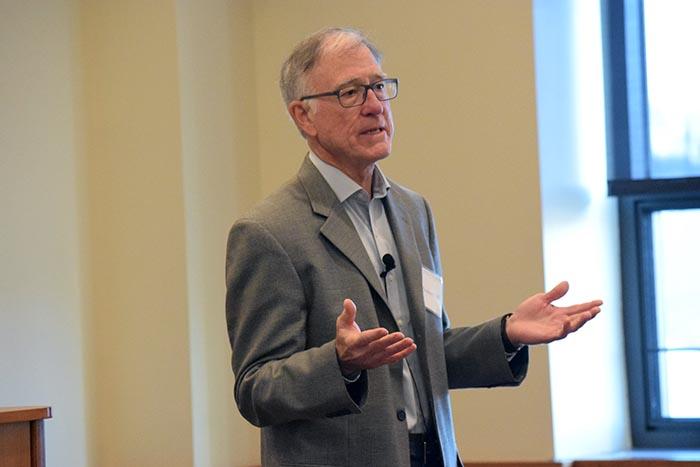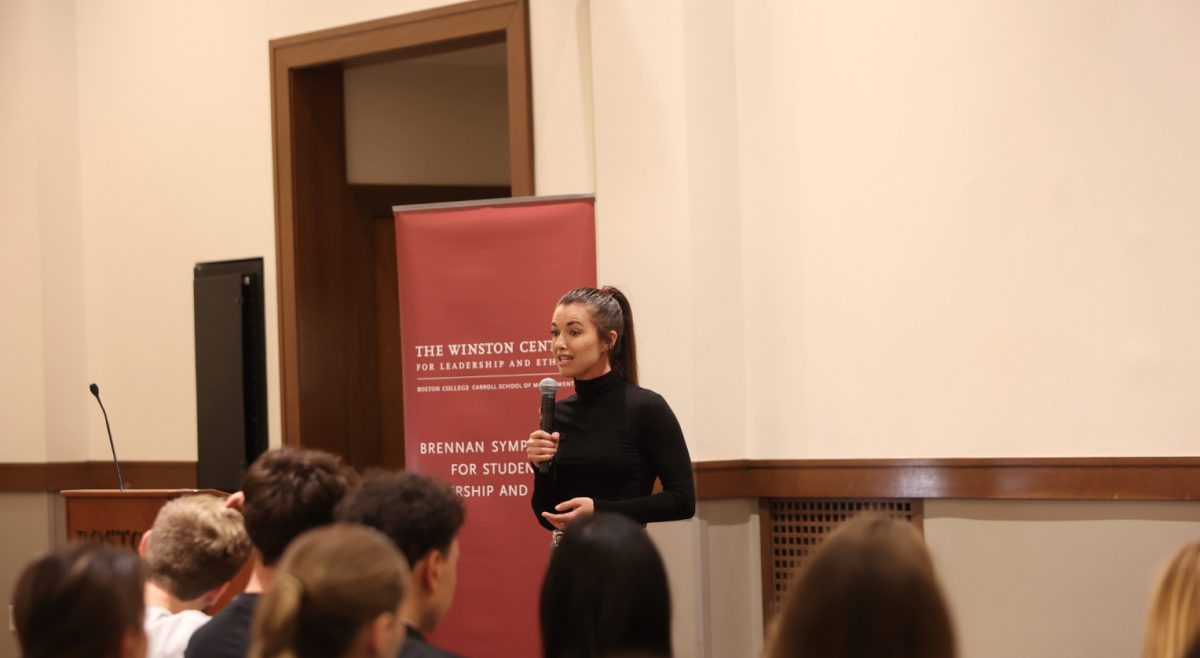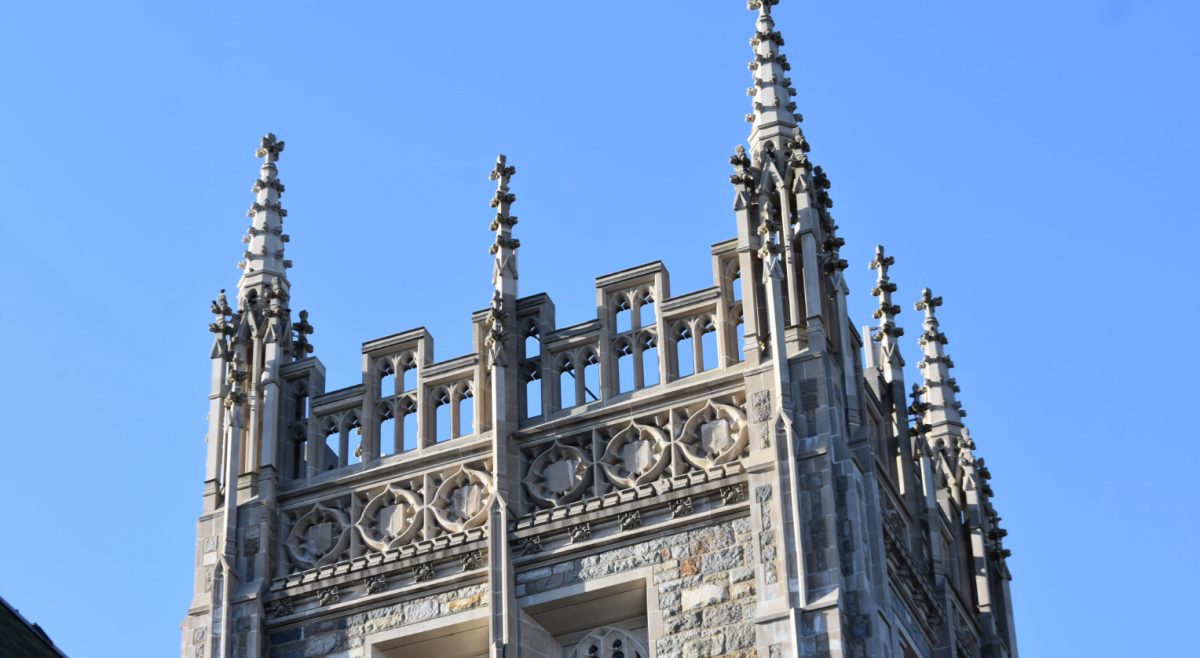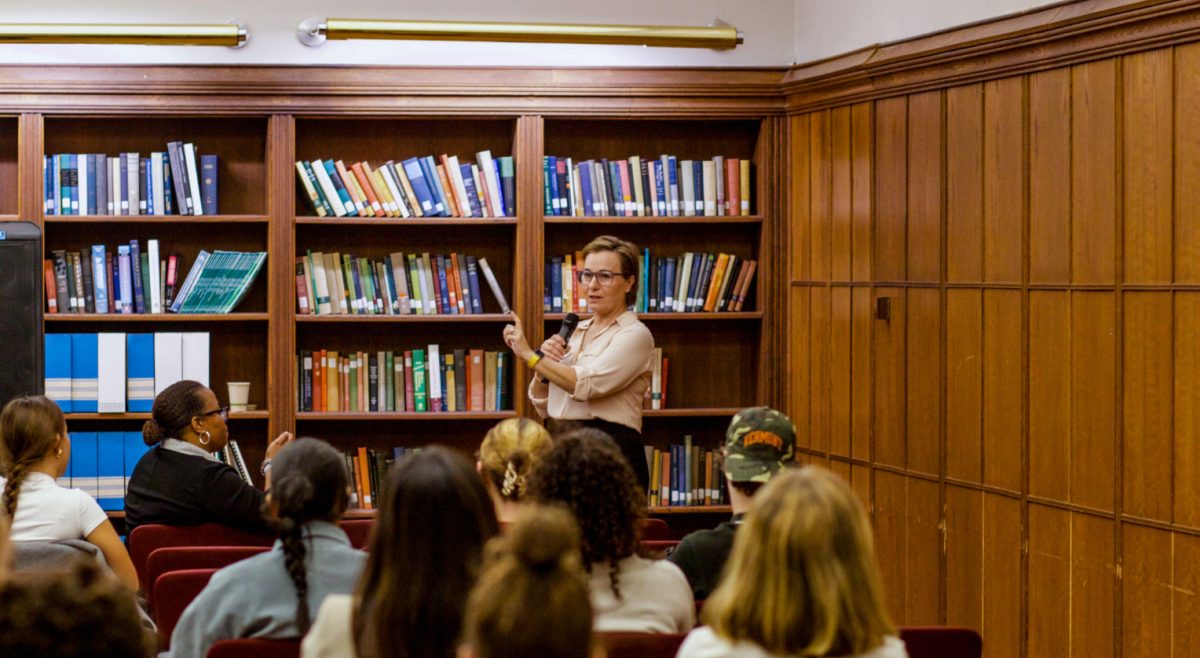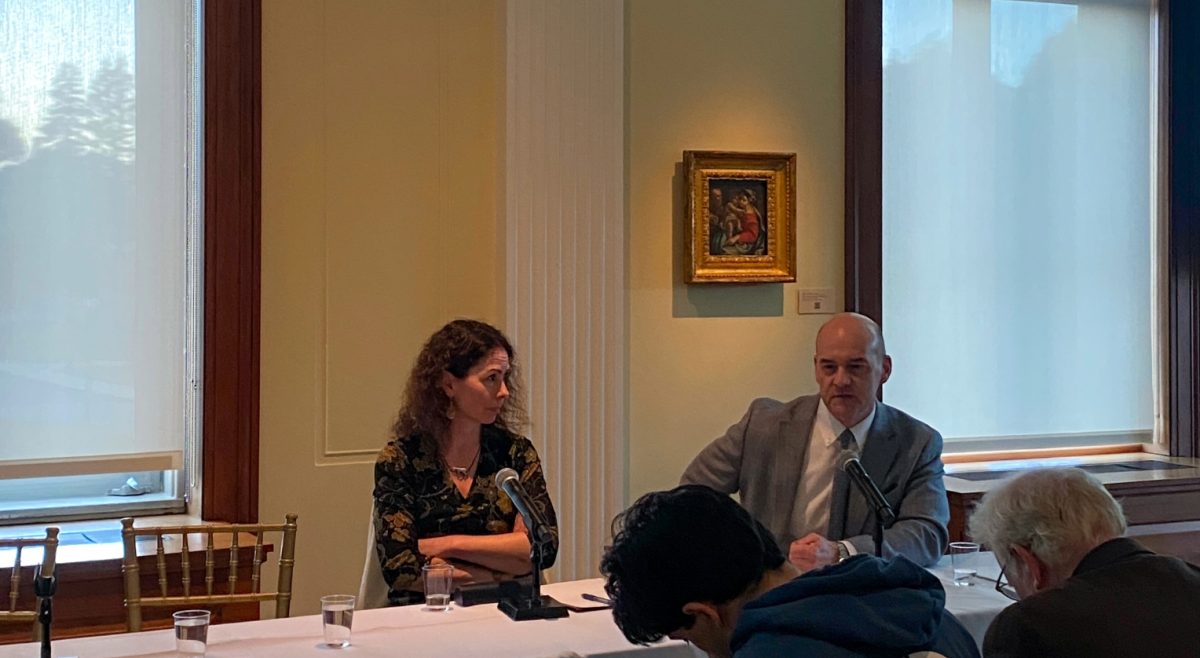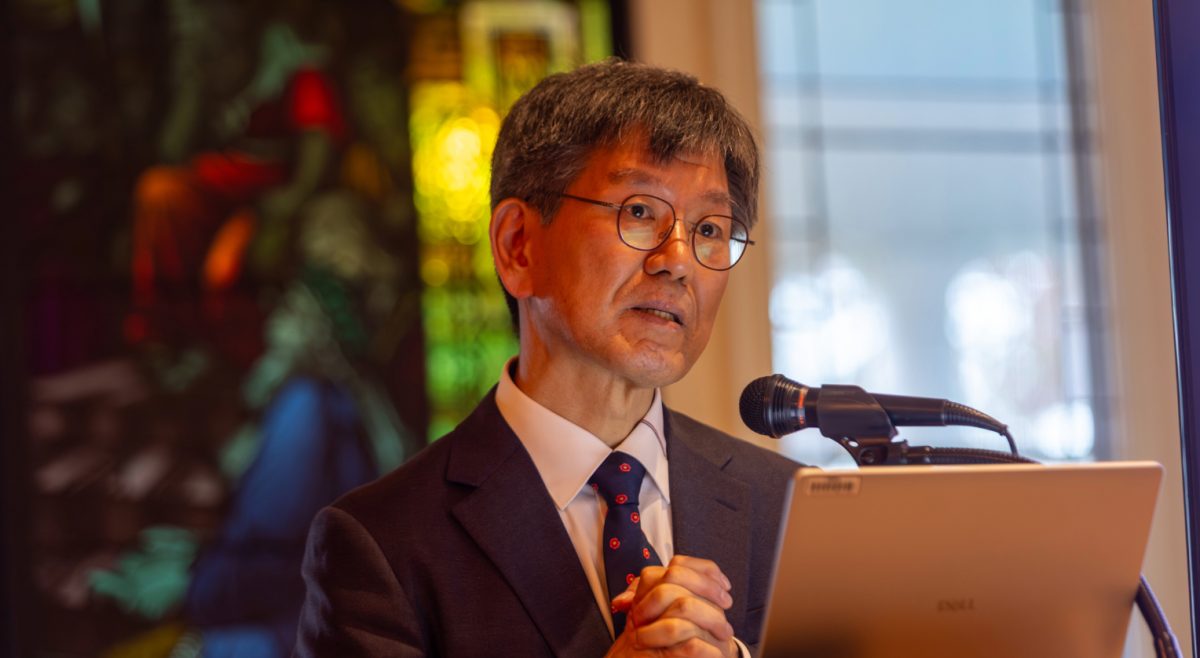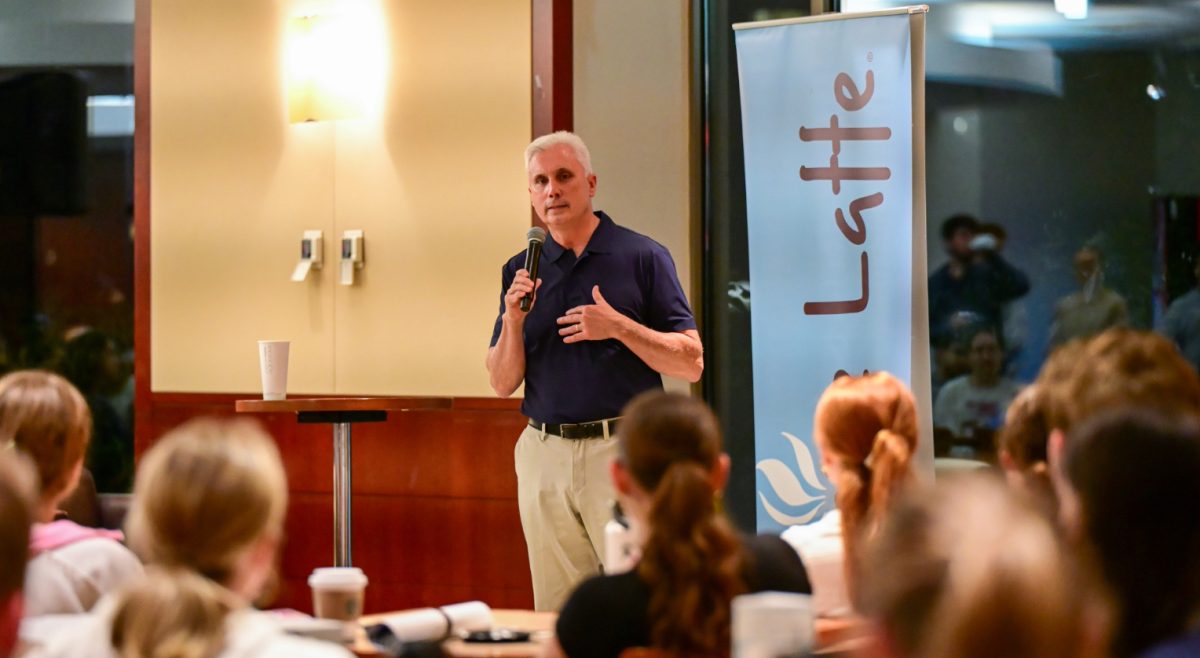Bill Plunkert, BC ’68, lectured on his experience with the CIA as a Cold War spy in Moscow this past Thursday in Gasson Hall. It was Plunkert’s second time speaking at Boston College and Andy Boynton, dean of the Carroll School of Management, said he intends to continue bringing Plunkert back to share his story.
The spy opened his lecture by talking about his first day coming to BC. He had never taken a plane before, so he took an overnight train from St. Louis, then his first taxi ever, before arriving on the steps of McElroy Commons. By the end of his freshman year, Plunkert recognized the University as his home.
“By BC being inviting, inclusive, and understanding, it gave me the confidence that I can try, I can fail,” said Plunkert. “By the time I graduated I was able to embrace what I call ‘trapeze moments.’ Where you leap into something new and it’s exhilarating and exciting and you never wonder what would have happened if [you] had never let go. BC gave me the security for that.”
Plunkert proceeded to give the context of the war and the extent to which the United States felt the war had the potential to be detrimental to democracy itself, as well as how Adolf Tolkachev, a Russian willing to leak information, deserved the most credit in terms of bravery.
Tolkachev was the leading engineer and weapons development specialist in the Soviet institute for aircraft weapon systems. He had access to specialized information and he was willing to give it away to the CIA.
“Part of the reason was because [Tolkachev]’s wife’s father was killed by Stalin under claims that he was a Nazi sympathizer, which was not true,” Plunkert said. “Tolkachev never forgot this. He loved his wife and his wife loved her father and he held that pain against the regime.
“[Tolkachev] understood that communism took away from human beings that which makes a human being a human being.” It took away their free will. It took away their choice. Tolkachev could sense that this was inhumane and he wanted to end that system.”
In order to access the information Tolkachev was willing to give, Plunkert had to manipulate his way past the intensive Soviet surveillance that was surrounding Moscow. After three months of preparation, Plunkert and fellow CIA members came up with a plan.
Plunkert and his team had to continuously set the stage for the operation three weeks prior to the meeting to the KGB under a false pretense that Plunkert and his partner were going to a birthday party, when in fact Plunkert was meeting a Soviet leaker. Plunkert planned to use a specific turn in a road to change into a disguise and leave the car to obtain the information. The required time frame for all of this to be successful was 25 to 30 seconds.
“We got into the car going to the birthday place and everything looks good,” Plunkert said. “But there’s roadwork so they close one lane and all the cars start butting in and it ends up the surveillance car is right behind us. I couldn’t look into the rearview mirror but I could see the car’s lights so I knew it was pretty close. Just as we were going into the second turn and Carl, the chief of station, hits me and tells me to get out. As I put both my feet on the sidewalk the lights from the surveillance car hit me.”
Plunkert’s disguise had worked, and he continued on walking through the December streets of Moscow in his disguise as an old Soviet man. In this disguise Plunkert had to wear a pair of Soviet glasses, which wouldn’t have been a problem if his breath moving through the plastic mask wasn’t causing them to fog up, and he wasn’t walking directly toward a pair of KGB guards.
“I was so scared I can’t tell you how nervous I was,” Plunkert said. “I had to memorize about 10 yards of the sidewalk and then exhale. My glasses would fog up and then I’d hold my breath again. Then my glasses would clear and I’d memorize the next 10 yards and so on.”
He was able to make it to a secluded place to change his disguise and take public transportation to meet Tolkachev. His prize for making it through the evening was a shoebox filled with films of confidential Soviet documents. This information, according to Plunkert, changed the Pentagon’s approach to protecting NATO from the Soviets, and prevented nuclear war.
“We could now defeat the Soviets attacking NATO with conventional weapons—we did not have to rely on nuclear weapons as the Soviets had anticipated us doing” said Plunkert. “Adolf Tolkachev is a hero and all of our lives were affected by his courage, his ideology and his persistence. That is the kind of thing that takes place and nobody knows about it.”
Correction (10/30/18, 6:59 p.m.): A previous version of this article stated that Plunkert was speaking at the University for the third time. It was his second time speaking at BC.
Correction (12/19/18, 4:30 p.m.): A previous version of this article misstated Plunkert’s graduation year. It is 1968, not 1965.
Featured Image by Amelie Trieu / Heights Senior Staff

